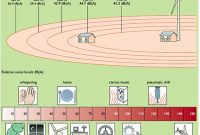
Reading Passage 9
Biofuels backlash Reading Answer
A.Biodiesel and bio-ethanol are cleaner, sustainable alternatives to petroleum-based fuels, which continue to deplete. Biofuels can be grown repeatedly from crops making them 100% renewable. Bio-ethanol is made in a similar way to ‘moonshine’ by fer menting cereals like corn and maize and then distilling the brew to evaporate the ethanol. Biodiesel is manufactured from the vegetable oils found in sunflower seeds, rapeseed and the oil palm. Gasoline (petrol) engines can be tuned to run on 90% ethanol blended with 10% petroleum and biodiesel is a direct replacement for exist ing road diesel.B Carbon-dioxide is the principal man-made greenhouse gas. It traps heat in the atmosphere and increases global warming, causing polar ice to recede and sealevels to rise. Energy crops offer one solution to the deleterious effects of carbondioxide emitted from vehicle exhausts. Biofuels are 100% carbon-neutral, which means that there is no net gain or loss of carbon to the environment when the fuels are burnt. The carbon-dioxide does not add to the total amount in the atmosphere because the crops absorb the equivalent amount of carbon-dioxide by photosynthesis as they grow. Consequently, the ‘carbon footprint’ of gasolineand diesel-powered vehicles can be reduced by switching to bio-ethanol or biodiesel. The latter burns more efficiently than petroleum diesel leaving less unburned hydrocarbons, carbonmonoxide and particulates, which means less atmospheric pollution as well as less global warming. Biofuels are less toxic than fossil fuels and biodegrade if spilt on the ground.
C Not everybody believes that biofuels are the ideal alternative to fossil fuels. The status of biofuels as environmentally friendly can be challenged on several counts. Firstly, to provide space for energy-crop plantations, trees are felled and burnt which creates a surplus of carbon-dioxide. Secondly, in tropical rainforests the loss of trees threatens biodiversity by destroying habitat. Thirdly, deforestation increases the evaporation of water from the ground, which can lead to extensive droughts. These deficits can be discounted if the energy crops are planted on existing agricultural land, but if this is done it reduces the supply of food crops, creating a surge in food prices. Furthermore, in developing countries people have barely sufficient food to eat and switching to fuel crops could threaten their meagre food supplies.


